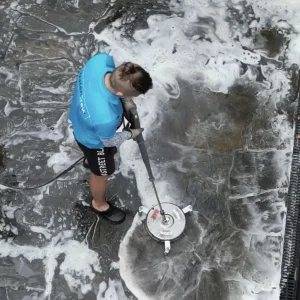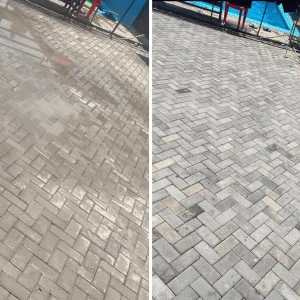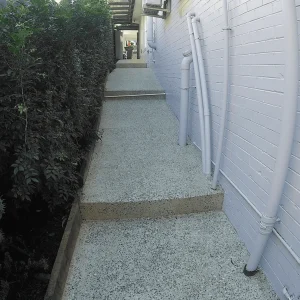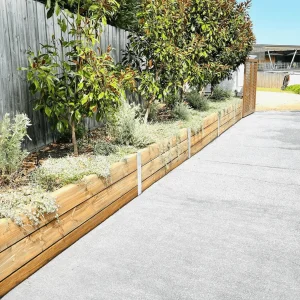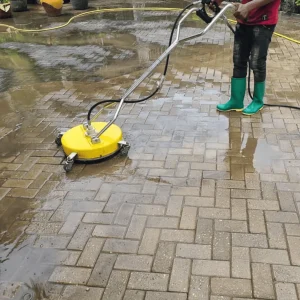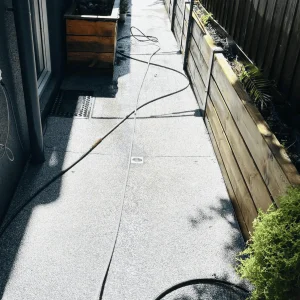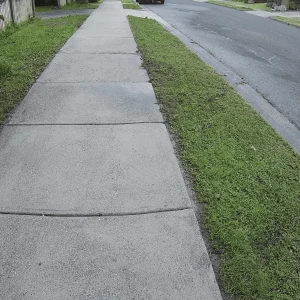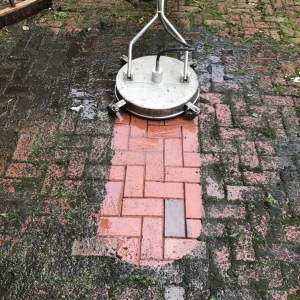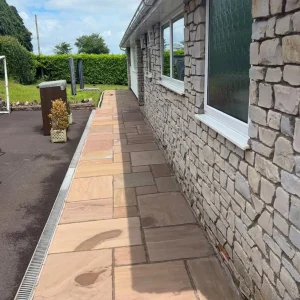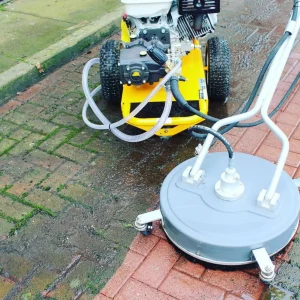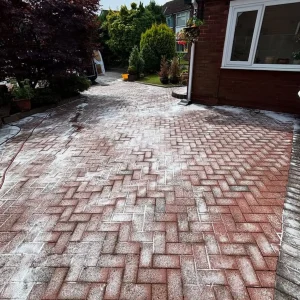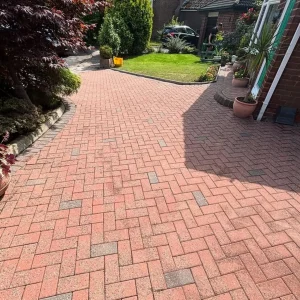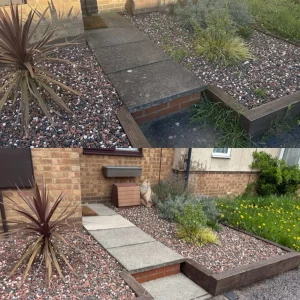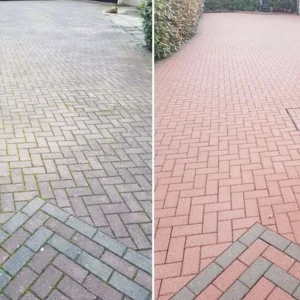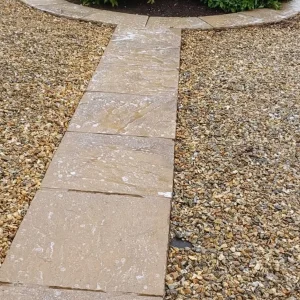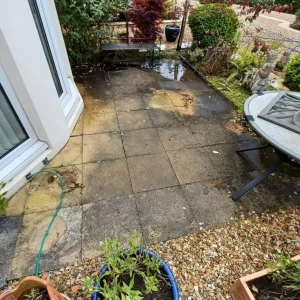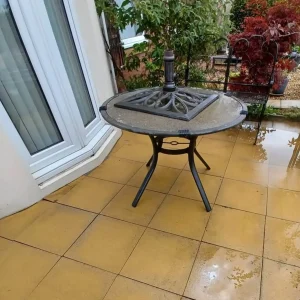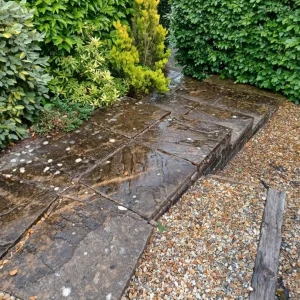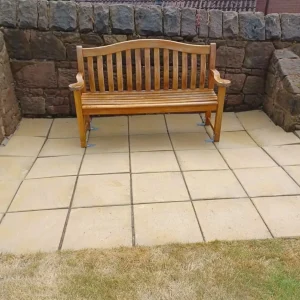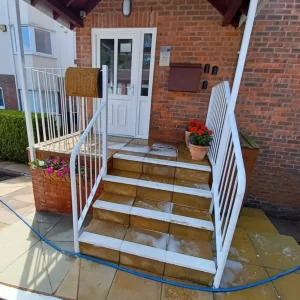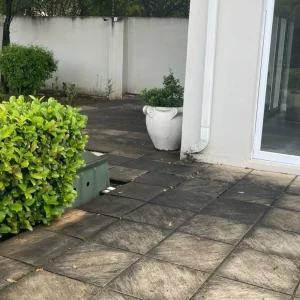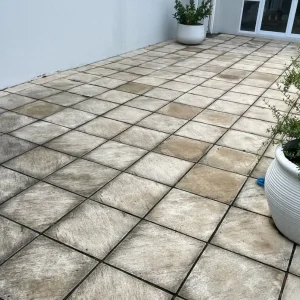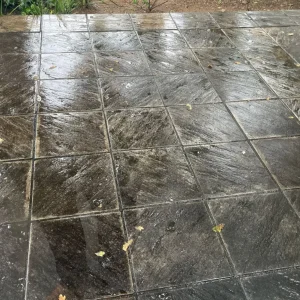Paving cleaning might not sound like the most thrilling topic to kick off your week, but if you’ve ever tried scrubbing red dust off sandstone or removing moss from slippery travertine, you’ll know just how much of a pain it can be. We’re Crew — your Aussie outdoor cleaning specialists — and we’ve spent more time than we’d like to admit elbow-deep in grime on patios, driveways, pool surrounds and courtyards across the country.
Done right, regular paving cleaning saves you money, boosts your kerb appeal, and saves your Sunday arvo for a barbie instead of bucket duty. (And if you’re already sorting the outside, Window Cleaning Melbourne Crew can help keep those glass panels streak-free too.)
- Terrific job by Water Crew cleaning our courtyards, rooftops and windows.read moreread lessChris Grigsby2/02/2026Eren takes the time to do an excellent job. He is very thorough and we are always amazed just how clear the windows are after his clean. I like that he has the proper equipment to clean gutters without having to climb on the roof. I recommended him to other family members and will be using his services regularly.read moreread lessDavid Neiger1/15/2026
Why Is Paving So Hard to Clean?
Paving’s a mixed bag of surface types and porous levels, which means grime and gunk latch on differently depending on what you’re walking on:
- Concrete pavers: Affordable and porous, they stain easily and love holding onto oil and tannins.
- Clay brick pavers: Dense but prone to moss and algae between joins.
- Natural stone: A beautiful appearance but soft varieties like sandstone or bluestone can scratch, chip, and crumble if cleaned the wrong way. Being a natural material, it requires correct solutions and a gentle touch.
- Exposed aggregate: Great traction, but every little crevice collects dirt.
Add in weather extremes, dodgy drainage, pets, BBQ fat, and leaf litter — and you’ve got a cleaning process that demands more than just soapy water and good intentions.
Pressure Washing vs Soft Washing
We get asked this all the time: “Can I just blast it with a pressure cleaner?”
Well, yes… but also no. High-pressure cleaning has its place — mainly on hardy surfaces like driveways — but it can cause more harm than good on delicate or older paving. Etched surfaces, dislodged grout, and paver flaking are all too common after someone’s gone ham with a 4000 PSI blaster.
Soft washing, on the other hand, uses lower water pressure in combo with biodegradable cleaning solutions to do the grunt work without brute force. Especially handy for algae, mildew, and black mould where pressure alone won’t cut it.
Our rule of thumb:
- Concrete or sealed surfaces? Light pressure cleaning is fine.
- Natural stone, older brick, or heritage pavers? Soft wash every time.
The DIY Method: How to Clean Pavers Properly
If you’re game to tackle your paving yourself, here’s how to do it without stuffing it up:
What You’ll Need
- Garden hose (or low-pressure washer)
- Stiff outdoor broom or brush
- Eco-friendly paver cleaner or active dirt remover with good driveway cleaning properties
- Spray bottle or watering can
- Bucket and gloves
- Protective clothing and footwear (essential if using any chemical cleaning agents)
Step-by-Step:
- Clear the area: Move furniture, pots, and anything in the way.
- Sweep off loose muck: Leaves, dirt, and sticks go first.
- Apply your cleaner: Follow the label’s batch size and mix guidelines, especially when diluting acid to water.
- Let it sit: Most need 5–10 mins to loosen grime — don’t let it dry.
- Scrub gently: Use a stiff broom to agitate — this brush-in cleaning technique helps lift embedded grime.
- Rinse thoroughly: Use clean water to wash off all solution and gunk.
Note: For oil stains or grease, chuck some absorbent material (like kitty litter or sawdust) on it first. Let it soak up, sweep away, then treat with degreaser.
Avoid These Paving Blunders
We’ve cleaned up after more DIY disasters than we can count. Learn from their mistakes:
- Using bleach on natural stone: One time we saw sandstone bleach-stained so bad, it looked like tie-dye.
- High-pressure cleaning old grout: Blasted half the filler into the garden bed. Not fun.
- Letting detergent dry in the sun: Baked-on cleaner turns into a residue nightmare.
- Wrong ph for the surface: Acid cleaning on concrete? That’ll burn in deep.
When to Call In the Pros (Like Us)
If your pavers are covered in heavy growth, have deep-set bore water stains, or it’s been a decade since their last clean — give us a bell. We’ve got the know-how and gear to clean the lot without causing surface damage.
At Mitch B’s Crew, we use:
- Soft washing for delicate surfaces
- Pressure cleaning for robust jobs
- ph-balanced solutions for specific materials
- Water-efficient systems to suit council guidelines
- A wide range of equipment tailored to different surfaces and dirt types
We’ve cleaned patios in Perth during fire season, pool surrounds in Cairns after The Wet, and commercial courtyards in Melbourne’s pollen-crazy spring. Local knowledge matters.
Seasonal Paving Tips
Here’s a rough guide for staying ahead of grime:
| Season | What to Watch For | Suggested Action |
|---|---|---|
| Summer | BBQ grease, UV fade | Gentle clean & reseal exposed areas |
| Autumn | Leaf stains, tannin spots | Weekly sweep & light clean |
| Winter | Moss, mould, water stains | Soft wash problem areas |
| Spring | Pollen film, storm debris | Full clean & rinse down |
If you’ve got heavy tree coverage or poor drainage, you might need to clean more often. And if you’re in QLD or the NT, The Wet will bring its own layer of cleaning chaos.
Paver Sealing: Worth It?
Absolutely — if done right. Sealing helps:
- Repel stains and water
- Reduce moss and algae growth
- Make future cleaning quicker and easier
- Extend the service life of your paving
Just make sure it suits your surface type. Some sealers can darken or change the finish. We always test a patch first and recommend breathable, non-gloss finishes for Aussie conditions and quality materials.
Got a Stain You Can’t Shift?
Drop us a line. We’ve tackled everything from turmeric spills on travertine to car oil on clay brick. Our cleaning arsenal’s ready for the worst of it.
And if you’re in Melbourne, don’t forget — the Window Cleaning team in Melbourne can sort your glass while we scrub your stone. Between both teams, it’s quality service across your whole exterior cleaning checklist.
Final Takeaway
Regular cleaning keeps your outdoor space safe, sharp, and long-lasting. Don’t wait for the algae to make it a skating rink or the stains to become permanent. A bit of elbow grease or a quick call to the pros can save your stone surface (and your backside).
Need a hand or just want to make sure you’re using the right method? Flick us a message — we’re happy to take a look and offer advice for every range of industry and surface need to keep your pavers clean and looking a treat.

Your satisfaction is our top priority. We tailor our services to meet your specific needs

We are committed to environmental responsibility. Our cleaning products are eco-friendly.

Pricing
We offer competitive pricing without compromising on the quality of our services.

Expertise
As a locally owned and operated company, we understand the unique needs of our community.
FAQ
How often should I clean my outdoor pavers?
Ideally every season, but at minimum twice a year — spring and autumn are good bets for a full clean.
Is acid cleaning safe for all paver types?
Nope. Only use acid-based products on suitable surfaces, such as some concrete. Never use them on natural stone.
Can I use vinegar as a natural cleaner?
Not on everything. It’s too acidic for some materials and can damage grout and stone. Stick to pH-neutral solutions.
What’s the best way to prevent moss and algae?
Regular cleaning, good drainage, and sealing your pavers help stop growth before it starts.
Will sealing my pavers stop them from getting dirty?
Not entirely, but it will make them easier to clean and protect against stains and water damage.

